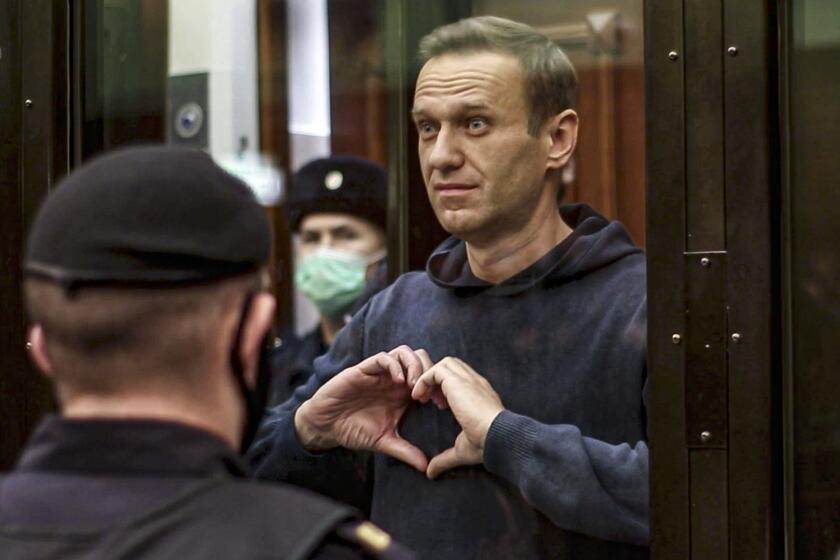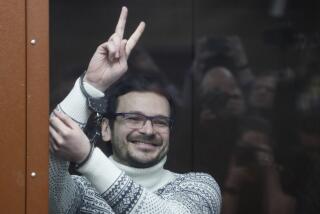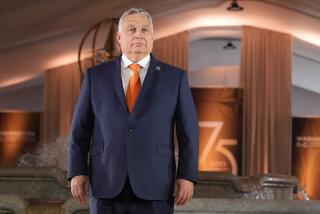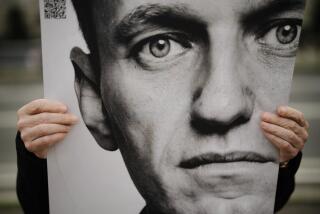Russia expels Western diplomats for attending rallies backing jailed activist Navalny
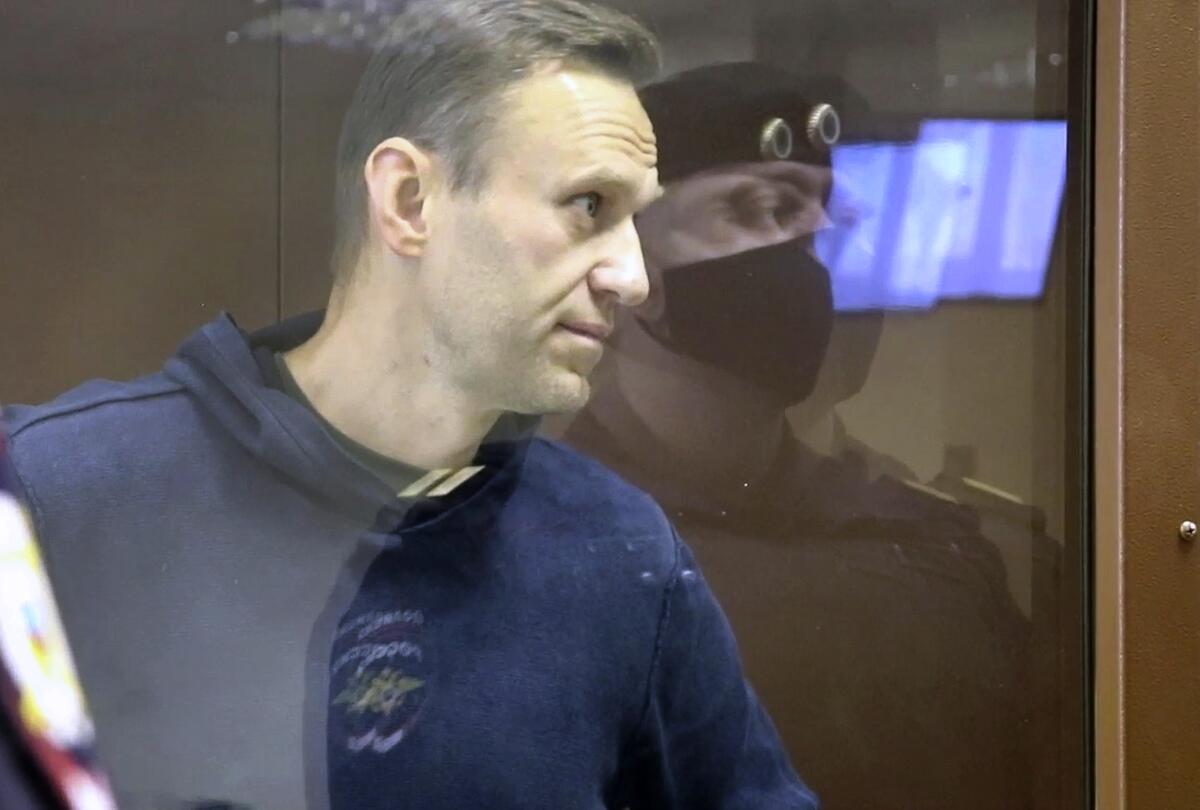
MOSCOW — Russia’s Foreign Ministry said Friday that it was expelling diplomats from Sweden, Poland and Germany who attended a rally in support of imprisoned opposition activist Alexei Navalny.
The announcement came as the European Union’s top diplomat told Russia’s foreign minister that the treatment of Navalny represented “a low point” in relations between Brussels and Moscow.
The Foreign Ministry said Swedish and Polish diplomats in St. Petersburg and German diplomats in Moscow participated in what it called “unlawful” rallies Jan. 23. Tens of thousands of people across Russia took to the streets that day to protest the arrest of Navalny, the Kremlin’s most prominent critic.
The diplomats were declared persona non grata and were required to leave Russia “shortly,” a ministry statement said.
EU foreign affairs chief Josep Borrell, who met earlier Friday with Russian Foreign Minister Sergey Lavrov, said before the session that “our relations are under a severe strain, and the Navalny case is a low point in our relations.”
Navalny, 44, an anti-corruption investigator and Russian President Vladimir Putin’s most prominent critic, was arrested Jan. 17 upon returning from Germany, where he spent five months recovering from a nerve-agent poisoning that he blames on the Kremlin. Russian authorities have rejected the accusation.
The sentencing of Putin critic Alexei Navalny doesn’t solve the Russian president’s problems.
On Tuesday, a Moscow court ruled that, while in Germany, Navalny violated probation terms of his suspended sentence from a 2014 money-laundering conviction, and ordered him to serve two years and eight months in prison. The ruling prompted international outrage.
After his meeting with Lavrov, Borrell said he had relayed his concerns over Navalny’s imprisonment and the arrests of thousands of people who demonstrated in his support. The EU official said he also communicated the bloc’s support for Navalny’s release and for an investigation of the August poisoning.
Lavrov accused European officials of refusing to share evidence of the poisoning. The Kremlin has said it will ignore Western criticism of Navalny’s sentencing and the police action against his supporters.
In the mass protests, many demonstrators chanted slogans against Putin in the largest show of discontent in years.
Navalny was back in court Friday for yet another trial — this time on the charge of defaming a World War II veteran featured in a pro-Kremlin video that Navalny slammed on social media last year.
More to Read
Sign up for Essential California
The most important California stories and recommendations in your inbox every morning.
You may occasionally receive promotional content from the Los Angeles Times.
